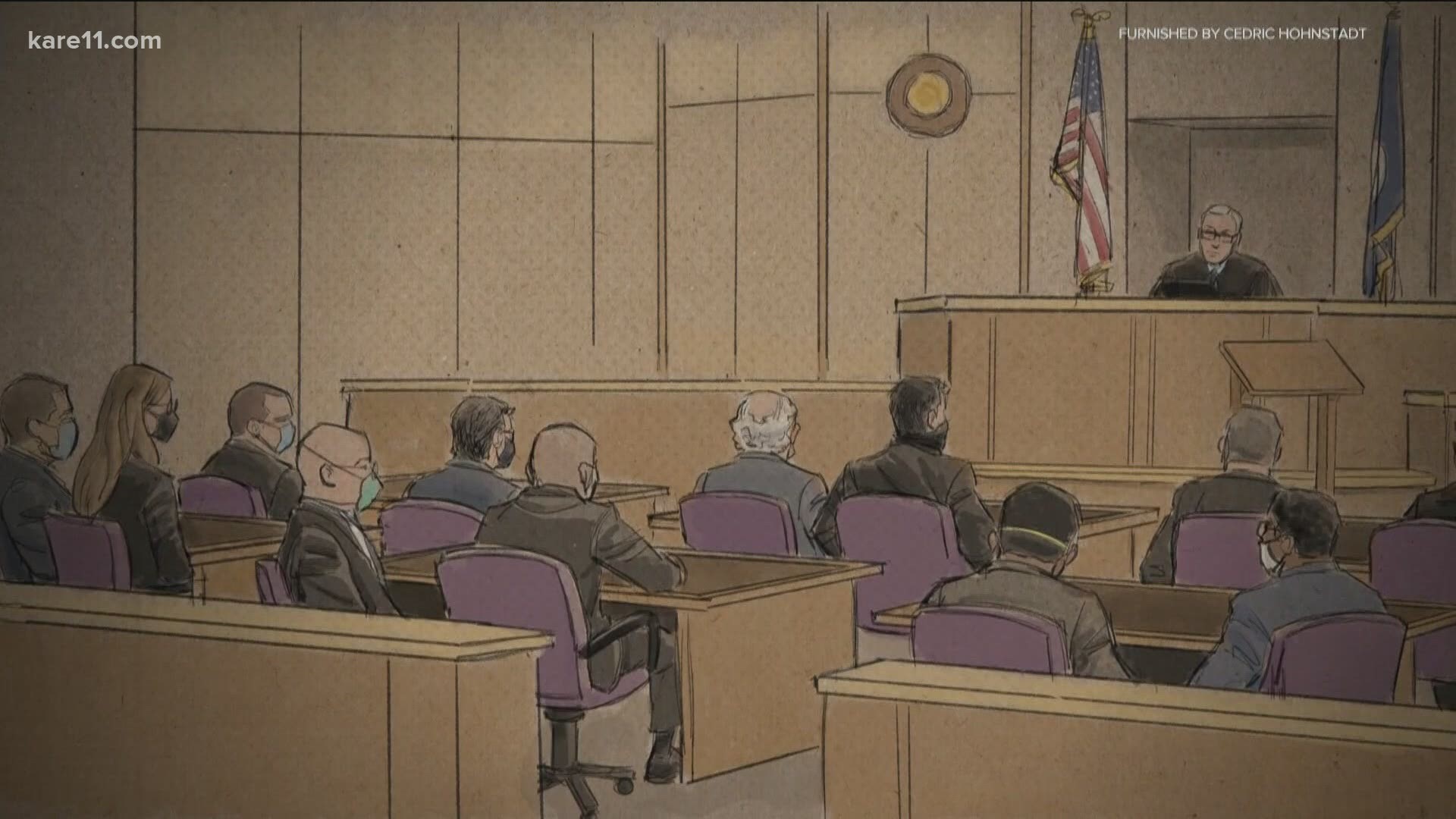MINNEAPOLIS — The jury is set in the murder and manslaughter trial against former Minneapolis Police Officer Derek Chauvin.
Opening statements will begin Monday, March 29, after the court completed the selection process slightly ahead of schedule. After combing through dozens upon dozens of candidates, the state and defense settled on 15 jurors, with one extra chosen in the event a replacement is needed before opening statements. Ultimately, 12 jurors (and two alternates) will render the verdict against Chauvin on second-degree murder, third-degree murder, and second-degree manslaughter charges in the death of George Floyd.
Although the jurors will remain anonymous, we know some basic demographic details about them:
- Nine are white, and six are jurors of color (including four identifying as Black)
- There are nine women and six men
- They range in age from twenties to sixties
Tom Heffelfinger, a former U.S. Attorney who has tried high-profile cases, said he’s impressed with the jurors’ demeanors, based on the questioning he saw over the past few weeks.
“You want jurors who are going to pay attention, who are going to get it, and who are going to be able to discuss it fully,” Heffelfinger said. “And I think they got that.”
All of them bring different life experiences to the room (although, as KARE 11 has reported, this high-profile case has brought attention to criticisms that low-income and working-class people don’t get the same opportunities on juries). There’s a chemist, an auditor, a non-profit executive, an IT worker, a social worker, a banker, a retired marketing professional, and even a nurse with cardiac experience. They have different views on Black Lives Matter and Blue Lives Matter; some even have loose ties to people in law enforcement. However, they’re on the jury because they have pledged be impartial, regardless of their personal views and opinions.
They must follow the evidence presented in the courtroom. The nurse, for example, cannot add her own medical expertise.
Mike Padden, an attorney who represented a man killed by Minneapolis Police in 2013 but is not involved in the Chauvin case, said the public shouldn’t read too much into the jurors’ backgrounds and experiences.
“I don’t think [the lawyers’] message, in terms of their opening, is going to depend on what kind of people they have sitting on the jury,” Padden said. “I think it would be the same no matter who it was.”
Jurors cannot talk to each other about the case during testimony.
“They’ll probably engage in a lot of small talk, and get to know each other somewhat,” Padden said. “That interaction, though, is significant, for who will be eventually chosen as the foreperson, but that won’t happen until deliberations begin.”
Heffelfinger, the former U.S. Attorney, said he believes the lawyers are likely “already figuring out who’s going to be the foreperson. That’s the person who is going to carry more weight in the jury room.” The foreperson only gets one vote, but delivers the verdict – which must be unanimous, guilty or not guilty.
“I think [the jury] really does reflect the best of the state,” Heffelfinger said, “and I take those people at their word that they will make a decision based on the facts and the law.”

